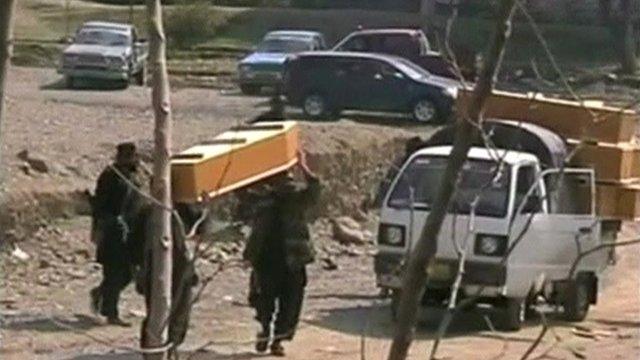World now 80% polio free, World Health Organization says
- Published
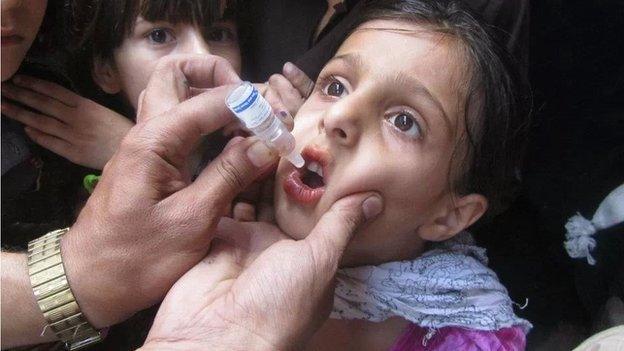
Polio is still a problem in Pakistan
The World Health Organization has declared its South East Asia region polio-free.
The certification is being hailed a "historic milestone" in the global fight to eradicate the deadly virus.
It comes after India officially recorded three years without a new case of polio.
The announcement means 80% of the world is now officially free of polio, although the disease is still endemic in Afghanistan, Nigeria and Pakistan.
Other countries in the WHO South East Asia region, such as Sri Lanka, Maldives and Bhutan, have been free of the virus for more than 15 years.
However, despite the "huge global significance" of the announcement, the WHO admits there are still major challenges to overcome if the world is the reach the goal of eradicating polio everywhere by 2018.
There have also been outbreaks in conflict-hit countries such as Syria, which had previously managed to stamp out the virus.
Polio mainly affects children under five years old. The virus is transmitted through contaminated food and water, and multiplies in the intestine. It can then invade the nervous system, causing paralysis in one in every 200 infections.
South East Asia is the fourth of six WHO regions to be declared polio-free after the Americas, Western Pacific and Europe regions. Eastern Mediterranean and Africa have yet to gain a similar status.
Dr Poonam Khetrapal Singh, WHO South East Asia regional director, said: "This is very significant because before this region was certified polio-free, we had half the world's population polio free.
"With the South East Asia region being added we now have 80% of the population polio free.
"This was a problem the region was struggling with for a long time, but now finally, we are polio free."
Rise in polio cases
Many experts thought India would be the last country in the world to get rid of polio says Deepak Kapur, of Rotary International's India National Polio Plus Committee.
He said India faced several enormous challenges including its large population.
He said: "India has close to 170 million children under five who needed to be immunised.
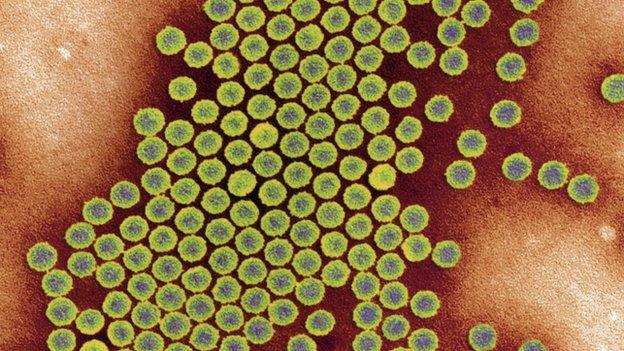
The polio virus can be deadly
"Then there's the existence of insanitary conditions which helped the polio virus to proliferate - and impure drinking water because polio is a water borne disease."
But he said the fact that India had managed it and now the whole of South East Asia could be declared polio free sent a powerful and optimistic message to the three remaining polio-endemic countries.
The world signed up to eradicating polio in 1988. The Global Polio Eradication Initiative was launched, which is a partnership between governments and organisations such as Unicef, the WHO and Rotary International. The aim was to banish polio once and for all.
In 1988 there were 350,000 recorded cases. By 2012 cases had fallen to 223. But last year there was a rise in cases to 406 new infections.
"Every child is still at risk"
The increase is largely down to vaccination campaigns being interrupted by conflict. In October 2013, Syria reported its first case of polio since 1999. By March 2014 there were 25 cases.
An outbreak in the Horn of Africa, which started in May 2013, has seen 217 new cases in Somalia, Kenya and Ethiopia.
While Thursday's announcement clearly marked an important milestone, there was still a long way to go, said Mr Kapur.
"Every child in the world is at risk of contracting polio until such a time as the wild polio virus is completely eradicated from every part of the world," he said.
"Until then no child - be it in North America or Europe - will be free of polio potentially hunting them down all over again.
"The only way to ensure the wild polio virus no longer exists in any part of the world is to wipe it out of every community in the world.
"It is not good enough to wipe it out on one continent and not the rest of the world because today the world is just one global village.
"The only way to keep polio away is through immunisation."
He said if every child on the planet were immunised, there would be nowhere for the virus to flourish and spread.
"Today's a big occasion for the entire global polio eradication initiative because if India - which had the most difficult of situations - can do it, others around the world can do it too," Mr Kapur said.
"So Pakistan, Afghanistan and Nigeria need to replicate the example of India and go after this virus.
"Global eradication could and should be achieved in the very near future."
Crossing Continents: Syria: The Silent Enemy is broadcast on 27 March at 11:00 GMT and 31 March at 20:30 GMT on BBC Radio 4.
Assignment: Syria: The Silent Enemy is broadcast on 27 March at 08:06 GMT, 14:32 GMT, 19:06 GMT, 23:32 GMT, and 28 March at 03:32 GMT on BBC World Service.
- Published26 March 2014
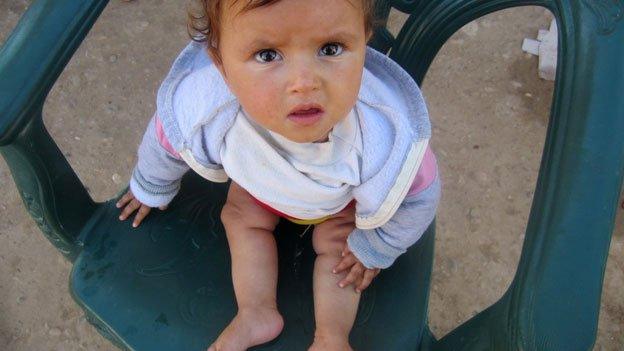
- Published11 February 2014
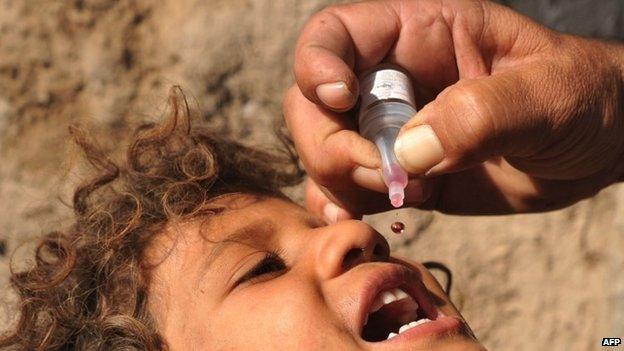
- Published1 March 2014
